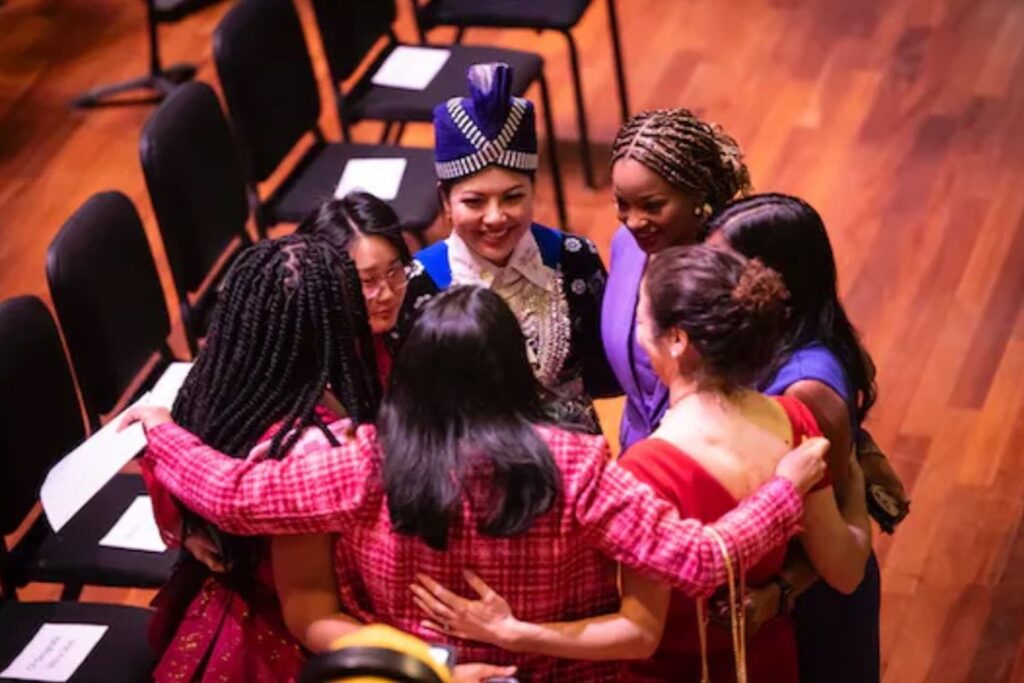An all-female city council has made history in the US after seven women took their oaths of office in the city of St. Paul, Minnesota. The legislative body is also the capital city’s youngest and most racially diverse council ever.
While not the first US city to elect an all-female council, the news has made international headlines as St. Paul is believed to be the biggest city to reach such a milestone, with a population of about 300,000.
“This new class of leaders sends a clear message from St. Paul voters, I believe, to the whole world,” said St. Paul’s City Council President Mitra Jalali ahead of the swearing in ceremony.
“We trust the leadership of these women. We believe in their personal and professional experiences and vision. Philanthropic and policy leaders, executive directors of nonprofits, an engineer… wow,” she said to a cheering crowd.
While the council’s historic female representation is being widely applauded, Jalali responded to critics in her speech with grace and wit, saying, “If you read my Twitter replies lately, the responses sure are something. They’re fighting for their lives in there.”
“Let’s just say, a whole lot of people who were comfortable with majority male, majority white institutions for the nearly 107 years of city history are suddenly sharply concerned about representation,” she said to even more cheers from the crowd.
“My thoughts and prayers are with them in this challenging time.”
Who are the members of this all-female council?
All seven women are under 40 years old, and six out of the seven are women of color. First-term Council Members include Anika Bowie, Saura Jost, Hwa Jeong Kim and Cheniqua Johnson, while incumbents include Jalali, Rebecca Noecker and Nelsie Yang.
All of them will serve four-year terms, and their election victories brought across-the-baord victory for progressive Democrats in St. Paul.
“Thank you for being change-makers. Thank you for being the road-pavers. Thank you for being the firsts,” said Lt. Gov, Peggy Flanagan in an address at the swearing-in ceremony. “By sitting in these chairs today, you are inspiring more girls than you can ever imagine.”
Since the new council members started moving into their offices last week, Jalali joked that the City Hall “has felt a bit like the Barbie movie.”
Members held their first city council meeting Wednesday, with Jeong Kim, the council’s vice president and Jalali saying their top priorities include a comprehensive housing policy, renter protections, climate action, public safety interventions that use police officers less and mental health responders more, and economic development.
The most senior member of the council, Noecker, gave closing remarks at the ceremony and urged the group to “really change things” with this momentous opportunity.
“We have the chance to show– through our actions, not just our words– what we all believe,” she said. “That government can be a force for good in people’s lives”.
In Minnesota, women made up 35 per cent of the municipal office holders in cities with over 10,000 people, tying with Michigan for 16th place among the 50 states, according to data from the Center for American Women and Politics at Rutgers University.
Jean Sinzdak, associate director of the center, told AP News that left-leaning and Democratic communities tend to have more women elected officials because Democratic women outnumber Republican women.
St. Paul’s city council is a nonpartisan office, but all seven members are Democrats. The city is also considered to be strongly Democratic, so Sindzak said she’s not surprised “that a city like this achieved this milestone first”.


